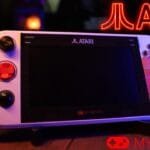If you’ve ever tried to boot a late-90s PC game on modern hardware, you know the frustration: crashes, black screens, or graphics that render like abstract art.
The era of Direct3D 7 games has long been a compatibility nightmare. Now D7VK, a community-driven translation layer, is tackling that problem — and it could be a game changer for Linux and Steam Deck users.
What D7VK does and why it matters
D7VK intercepts legacy Direct3D 7 graphics calls and translates them into Vulkan commands through DXVK’s D3D9 implementation. In plain English, it makes old games speak the language of modern GPUs. This allows titles that once refused to run to boot, render correctly, and actually be playable.
You can learn about D7VK and download a copy on the project’s GitHub page.
Bringing back iconic games
This isn’t just about obscure software — many Direct3D 7 titles are still celebrated classics that never got official modern ports. Some notable examples include:
- System Shock 2 – the atmospheric sci-fi horror game that’s still terrifying decades later.
- Thief: The Dark Project – immersive sim that is notoriously fussy on modern systems.
- Legacy of Kain: Soul Reaver – a cult favourite trapped in an unstable engine.
- No One Lives Forever – a spy-fi classic long locked behind licensing issues.
- Homeworld (original) – an RTS milestone that can be tricky to run today.
- Deus Ex – the legendary cyberpunk RPG with quirks on modern OSes.
D7VK gives these titles a fresh shot at compatibility, making them easier to experience on current setups.
Why Linux and Steam Deck users should pay attention
For Linux users, Vulkan is the backbone of modern gaming, but Direct3D 7 games never fit cleanly into DXVK’s workflow. That’s where D7VK comes in. It reduces crashes, eliminates hours of fiddling with Wine prefixes, and makes “just play the game” possible. On the Steam Deck, this is particularly valuable for anyone with a retro PC library.
It’s early days but promising
D7VK isn’t perfect. Mixed engines using DirectDraw, GDI, or multiple graphics paths can still behave strangely. Some games may require tweaks. But development is active, issues are addressed quickly, and the range of supported games is growing steadily.
It makes classic Direct3D 7 titles accessible on modern hardware, and crucially, viable on Linux-based systems. If you have a backlog of retro PC games, this project is worth following closely — your favourites might finally get the second life they deserve. But keep in mind that many of the games are available via GOG, and should run on Linux.
Affiliate Disclosure: Some of the links in this post may be affiliate links, which means I may earn a small commission if you make a purchase through those links. This comes at no extra cost to you. Thank you for your support!
Christian Cawley is the founder and editor of GamingRetro.co.uk, a website dedicated to classic and retro gaming. With over 20 years of experience writing for technology and gaming publications, he brings considerable expertise and a lifelong passion for interactive entertainment, particularly games from the 8-bit and 16-bit eras.
Christian has written for leading outlets including TechRadar, Computer Weekly, Linux Format, and MakeUseOf, where he also served as Deputy Editor.
When he’s not exploring vintage consoles or retro PCs, Christian enjoys building with LEGO, playing cigar box guitar, and experimenting in the kitchen.






